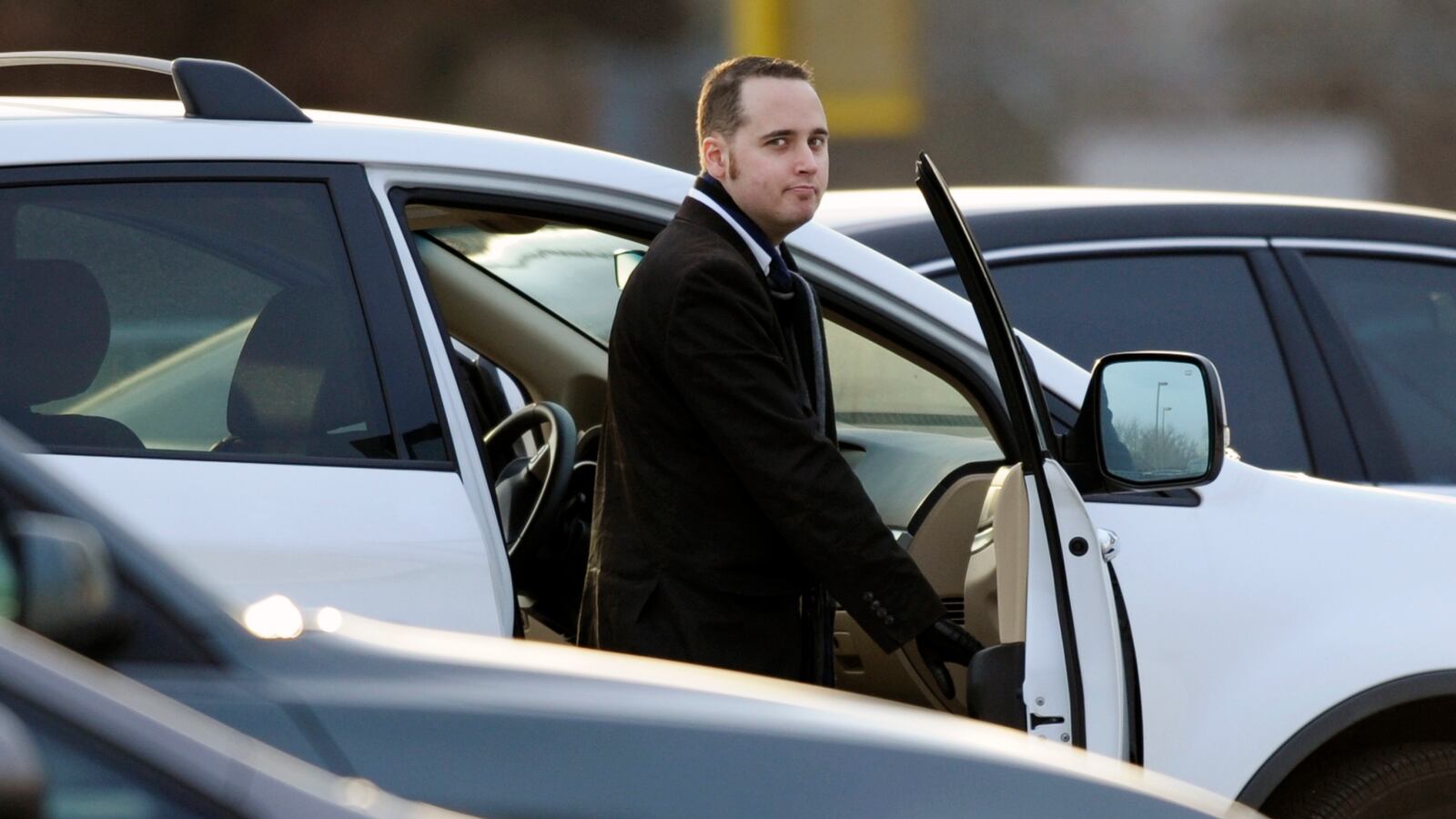In 2010 Army Pfc. Bradley Manning passed a trove of classified material to WikiLeaks, including hundreds of thousands of diplomatic cables. Now Manning is on trial on 12 different charges relating to his unauthorized disclosure, including aiding the enemy and violating the Espionage Act (Manning has already pleaded guilty on 10 lesser charges of misusing classified information).

On Tuesday, Adrian Lamo, the computer hacker who turned Manning in, testified.
Lamo was a prominent “gray-hat computer hacker” with criminal convictions for hacking the websites of prominent companies like The New York Times and Microsoft whom Manning turned to as an online shoulder to cry on about his life and the documents he’d given to WikiLeaks.
But Lamo—worried that the leaks would put lives at stake—reported Manning to the Army. That decision made Lamo a bête noire among Manning’s supporters, who have denounced him as the “world’s most hated hacker” and worse.
Here are the highlights from Lamo’s testimony Tuesday. Because there is no official court record of the trial available, this report relies on the unofficial transcript that a stenographer employed by the Freedom of the Press Foundation is providing online for journalists and the public.
Manning’s Idealistic Goal
When asked by Manning’s lawyer if the Army private had said anything that indicated a desire to do harm to the United States or if he ever wanted to help the enemy, Lamo said, “No, not in those words.”
Instead, the soldier, who had dog tags saying “humanist,” was hoping to allow “people to see the truth” and change their minds, Lamo said. Manning, according to the man who turned him in, thought he had access to “incredible things, awful things, things that belonged to the public domain” and that he had a responsibility to share it with the world. This feeling was intensified by Manning’s belief that all humans were “connected” and that he felt like “we were all distant family.”
The Kissingerian Worldview of the WikiLeaks Mole
Despite his idealism, Manning confided in Lamo that he didn’t think there were any “good guys” or “bad guys” in the world. Instead, he only saw “a plethora of states acting in self-interest,” Lamo testified—a realist view of foreign policy that wouldn’t be out of place in the Nixon State Department. Manning’s view that the U.S. engaged in war crimes and that there was “a diplomatic scandal” at “every U.S. post,” though, would have been less popular with foreign-policy pragmatists like Kissinger.
From WikiLeaks to Electoral Office?
Despite leaking untold numbers of classified documents, Manning told Lamo that he had ambitions of going into politics. He believed that “humanity could accomplish a lot, if smart people with ideas cooperated with each other” and that “apathy was far worse than active participation.”
Manning Only Contacted Lamo Because of a Shared Concern for LGBT Rights
Although Lamo was a prominent computer hacker who had contributed money to WikiLeaks, that wasn’t why Manning originally reached out to him. Instead, it was specifically because of the computer hacker’s work as an advocate for gay rights. The Army private—who is gay and was suffering from gender identity disorder, creating an alter-ego named Breanna Manning—felt that Lamo, who served on a San Francisco municipal task force for “lesbian, gay, bisexual, transgender, queer, and questioning youth,” would be a sympathetic listener.
Manning’s Mental-Health Struggles
After sharing the classified documents with WikiLeaks, Manning struggled with suicidal thoughts and told Lamo that “he was trying not to end up killing himself,” as he felt “his life was falling apart.” The gay Army private, serving in the military prior to the repeal of “don’t ask, don’t tell,” told his confidant that he was a “broken soul” who was “emotionally fractured” and struggling with suicidal thoughts. In fact, he had turned to Lamo because in his ”desperate and isolated” state “he didn’t have anyone else to talk to.”
Bradley Manning’s Gmail Address and AIM Account
Like almost every other 25-year-old, Bradley Manning had a Gmail account. Although he sent encrypted email, erased hard drives, and practiced all sorts of other high-tech tradecraft in releasing a trove of classified material to WikiLeaks, he could still be reached simply by emailing bradley.e.manning@gmail.com. But in his chats with Lamo, Manning used AOL Instant Messenger, where his screen name was the rather juvenile BradAss87.






